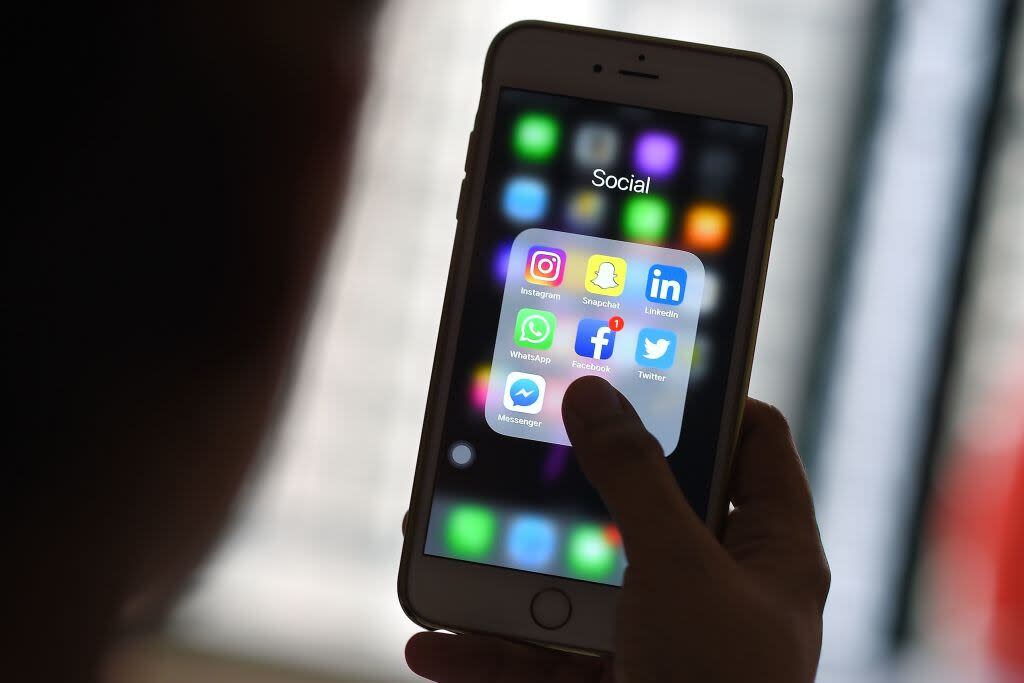More Ontario school boards join suit against social media giants

Five more Ontario school boards and two private schools have joined an ongoing lawsuit against some of the world's largest social media companies that argues their products have negatively rewired the way children think, behave and learn.
"The addictive properties of the products designed by social media giants have compromised all students' ability to learn, disrupted classrooms and created a student population that suffers from increasing mental health harms," said a news release issued Wednesday by Schools for Social Media Change, an umbrella group of the plaintiffs in the suit.
"As a result, social media companies have forced school boards to divert significant resources including personnel, hours, funds, and attention to combat the growing crisis caused by their products," it continued.
The suit was initially filed in late March by the public district school boards of Toronto, Peel and Ottawa-Carleton, along with Toronto's Catholic counterpart.
They are now joined by:
Dufferin-Peel Catholic District School Board.
York Catholic District School Board.
Trillium Lakeland District School Board.
Ottawa Catholic District School Board.
District School Board of Niagara.
Private schools Holy Name of Mary College School and Eitz Chaim.
The suit seeks roughly $4.5 billion in total damages from Meta Platforms Inc., Snap Inc. and ByteDance Ltd., which operate the platforms Facebook and Instagram, Snapchat and TikTok respectively.
"The mix of public and Catholic school boards, and private schools in both urban and rural regions of Ontario demonstrate this is a universal issue that affects those from diverse cultural, religious and socio-economic backgrounds," the news release said.
The allegations have yet to be proven in court, and there is no set date for when they will be heard.
In a statement, a spokesperson for Meta said the company has parents' "interests at heart in the work we're doing to provide teens with safe, supportive experiences online." The spokesperson said Meta has introduced more than 30 tools to give parents control over their teens' use of Instagram and protect users from various online harms.
Meanwhile, Snap said it intends to defend the claims in court and that Snapchat was "intentionally designed to be different from traditional social media."
"Snapchat opens directly to a camera — rather than a feed of content — and has no traditional public likes or comments. While we will always have more work to do, we feel good about the role Snapchat plays in helping close friends feel connected, happy and prepared as they face the many challenges of adolescence," the company said in an email.
Meanwhile, a representative for TikTok said the app has "industry-leading safeguards," including parental controls and an automatic 60-minute screen time limit for users under 18.
"Our team of safety professionals continually evaluate emerging practices and insights to support teens' well-being and will continue working to keep our community safe," the spokesperson said.
Ontario Premier Doug Ford publicly criticized the suit after it was filed, calling it "nonsense" and questioning the legal fees the boards could end up paying in a protracted court battle against some of the richest companies in the world.
Neinstein LLP, the Toronto-based firm representing the school boards and private schools, said in March they will not be responsible for any costs related to the suit unless a successful outcome is reached.
Similar lawsuits in U.S.
Hundreds of school boards in the United States, along with some states, have launched similar lawsuits against social media companies.
Last fall, over 30 states accused Meta Platforms Inc. of harming young people's mental health and contributing to the youth mental health crisis by knowingly designing features on Instagram and Facebook that cause children to be addicted to its platforms.
In April, Ontario's Ministry of Education announced it would introduce new measures to crack down on cellphone use by students in the province's schools.
Starting in September, students in kindergarten to Grade 6 will be required to keep phones on silent and "out of sight" for the entire school day, unless they are granted permission to use it, the ministry said.
Similarly, students in grades 7 to 12, will not be permitted to use their cellphones during class time without permission.
"If they do not comply, they will be asked to surrender their phones or they could be sent to the office," Education Minister Stephen Lecce said at the time.
The new policies were announced after a previous 2019 attempt to "ban" smartphones in Ontario schools floundered, with many boards saying it was unenforceable.


